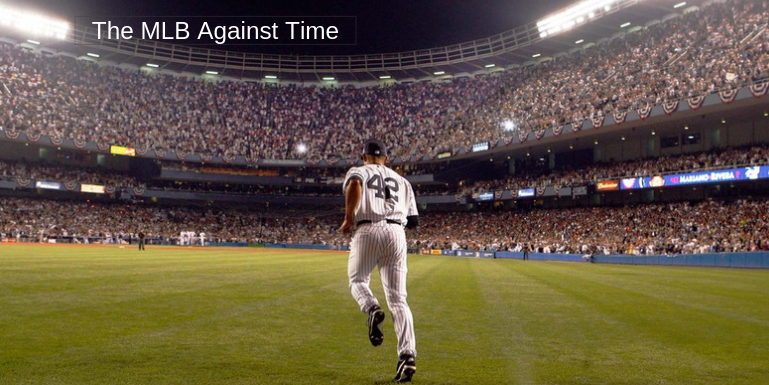MLB- The Race Against Time
March 22, 2019
Year after year the MLB faces new challenges as they attempt to make each game of baseball more fair and enjoyable. Many rule changes get tested and implemented every year. One main cause for rule changes is the pace of play. The MLB attempts to speed up games every year with new rule changes. Last year, the bullpen car was introduced. Pitchers could opt into using the car when they get called to the mound. This didn’t work out so well though. Very few pitchers chose to use it throughout the season and one spring training game got delayed due to the car getting stuck on the field.
But still, the MLB continues to try to shorten the length of the game. This year and next they will continue to focus on pitchers’ control of time. Mound visits were limited to six per game last year; this year they will limit visits to five. Mound visits, especially late in the game or during the playoffs, were usually frequent and time consuming. This rule change has been a successful one and will continue to shorten the time of play without affecting the game too much.
Most of the controversy is surrounding a rule that would be implemented in the 2020 season. That rule is the three batter minimum for pitchers. This means any pitcher entering the game will be required to face at least three batters or end an inning. Although at first glance it doesn’t seem like that much of an issue, this rule would affect part of the strategy in the game. If you regularly watch baseball, you have most likely seen multiple pitching changes within an inning before. This is part of the strategy in the game of baseball and many feel like that is being taken away to please a fan base that some see as not true fans. Although the rule will help speed up the game, it takes away many relief pitcher’s opportunity to have a career in the MLB, as many of them are used in these late game situations.
These rules being implemented in the next couple of years will shake the game up immensely, that much is obvious. To the fans who are angry to see baseball change and stray further and further away from its traditional style, I understand. These new rules might be harming the game, but there is a chance it won’t hurt anything. It will be important to keep an open mind as the MLB most likely won’t stop here. They are rapidly trying to find new ways to speed up the game to make it more appealing to the average viewer, which is good for baseball. All in all, the upcoming rule changes will never take away from what the game truly is and the upcoming seasons will be just as, if not more, exciting to watch.








Joey Goodsir • Mar 22, 2019 at 6:43 pm
Contrary to many journalists and even the MLB, I think that the main cause of the “baseball is boring” narrative is not the result of speed of play or length of game, but a lack of urgency.
In this country, sports fans easily take in up to four hours of one football game (with endless commercial breaks on top of that) without nearly as much complaint, and I feel that one of the reasons why we still stick through it is because your favorite team only plays 12 (CFB) or 14 (NFL) games in a regular season, with that lack of time increasing the stakes.
Baseball is a completely different dynamic. With your favorite team playing 162 games, there is no need to rush to a tv, there is always tomorrow. It’s easy to get bored with a sport that is oversaturated in that way
Come October? Postseason baseball magically brings you excitement. All the “slow points” people complain about add to the experience. You find yourself hanging on every pitch. Go to a game? Suddenly what would be a “boring” regular season game on TV is now more entertaining. It’s not the game mechanics or rules that hinder it to cause people to disengage, it’s the lack of stakes behind each regular season game.
While I think that some time-cutting could be beneficial, I sure hope the league never steps into changing rules to shorten the lengths of games. People will still watch if you give them good reason to no matter how slow. They would benefit much more from decreasing the amount (and frequency) of games in a regular season.